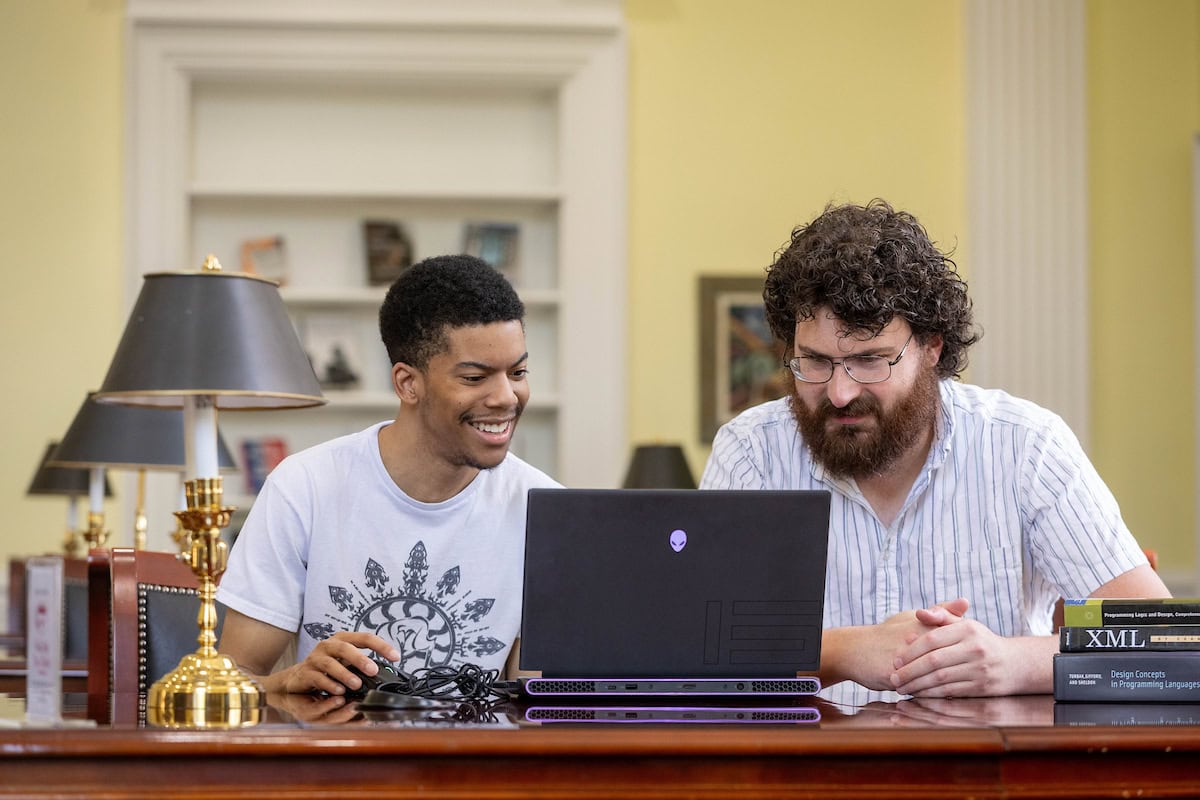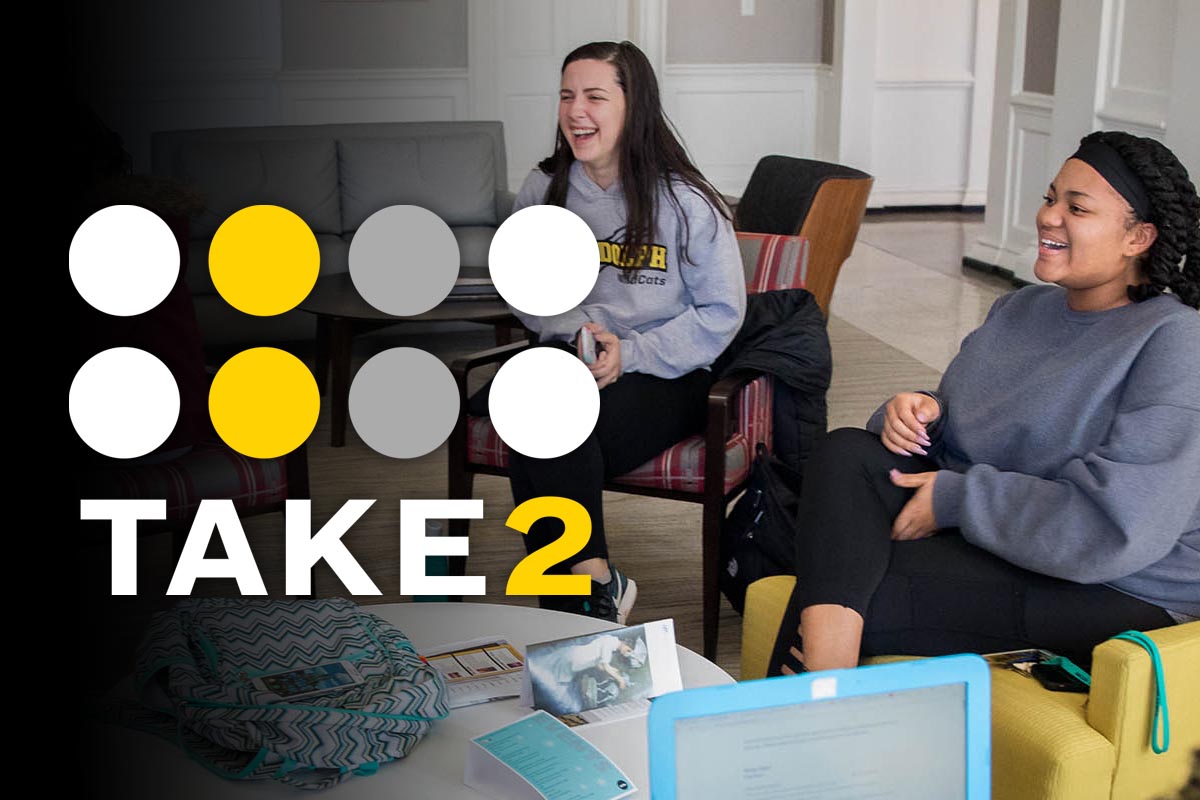Research project testing the potential uses of AI in role-playing video games
Randolph’s Summer Research Program is a competitive, paid program that pairs students with faculty members to conduct research in their areas of interest. This story is part of an ongoing series featuring their work on campus this summer.

David Kline ’26 and professor Brad Spendlove are researching large language models and their potential use in role-playing games.
 In a typical role-playing video game, programmers, in collaboration with game designers, determine the rules, mechanics, and overall structure of the game.
In a typical role-playing video game, programmers, in collaboration with game designers, determine the rules, mechanics, and overall structure of the game.
This includes how characters move, how dialogue is displayed, how combat works, and how the player’s actions affect the story.
All of this is done through what computer science major David Kline ’26 called “rigorously defined code.”
This summer, he is teaming up with computer science professor Brad Spendlove to test if large language models (LLM)—artificial intelligence that understands and generates human language, like ChatGPT—can autonomously update the game instead.
“In normal video games, the programmers are making the decisions,” Spendlove said, “and here, we’re experimenting with, ‘Can we offload that decision-making to an LLM?’”
Spendlove thought Randolph’s Summer Research Program would be the perfect place to explore this idea, which he’s had for awhile.
“Modern large language models like ChatGPT are, of course, huge and very powerful,” Spendlove said. “It’s really just an open research question right now, what these models are capable of. We’ve seen they are good at generating running text or conversational text. This will test if they can generate specific instructions that can be fed into a computer program to update the game.”
A video game lover and computer science major, Kline was a natural fit to work with him this summer.
“I’m really hoping to get some experience coding in a more job-like environment,” he said.
The first step is designing a game prototype, which they will eventually connect to an LLM.
“It’s very open-ended,” Spendlove said. “I anticipate a lot of trial and error, seeing what works and what doesn’t. I’m confident we’ll come out on the other end with some interesting data.”
Tags: computer science, summer research 2025, Summer Research Program
